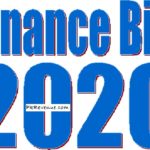KARACHI: Business community has criticized the government for eliminating condition of conducting audit once in three-year period.
Overseas Investors Chamber of Commerce and Industry (OICCI) highlighted anomalies in the Finance Bill 2020, sent to the Federal Board of Revenue (FBR) and said that omission of the condition would burden the taxpayers and would give sweeping powers to tax officials.
The Finance Act 2018 restricted the frequency of conducting audits to once in a three-year period.
This amendment of 2018 demonstrated the confidence of the Government on the records maintained by registered persons.
The Bill now seeks to omit the condition of conducting the audit once in a three-year period. If passed, this will unnecessarily burden taxpayers, while handing over sweeping powers to the assessing officers of Inland Revenue to conduct audits covering one or multiple tax years with no reprieve for the taxpayer available under the law, in absence of any prescribed limitation.
The consequence of this change will likely erode the taxpayer’s confidence in the revenue machinery and the probable unnecessary wastage of time and effort by the revenue authorities.
The OICCI said that during the FBR/OICCI Web link meeting on May 5th the FBR Member (IR-Operations) informed that new Audit Policy will be announced soon, where there will be only one audit in three years u/s 122, which was welcomed by OICCI members.
Therefore the removal of condition of one audit in three years in the Finance Bill 2020, is a shock for OICCI members.
“Hence, we strongly advocate maximum of one for audit within three years, for promoting Ease of Doing Business,” the OICCI said.



